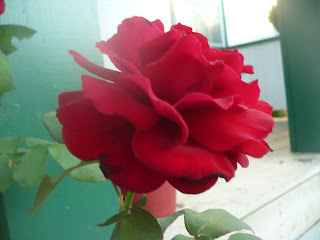I know all too well the string of
a hot metal against skin, the way steam can burst up and leave a patch on your
arm like a bad sunburn, and the blistering that oil burns leave behind. I know
what it’s like when the orders seem to shoot out of the machine faster than I
can get the chicken into the broaster and the vegetables into the steamer. I’ve
had servers on my back, begging for their fish and chips, ‘cause table seven’s
already been waiting fifteen minutes.'
I guess by reading Anthony
Bourdain’s book, I was reminded that the kitchen I work in is a relatively low
stress environment, compared to the places that hire full-fledged chefs. In
fact, Bourdain’s world is far removed from mine. Some of the details Bourdain
writes sound like they’re coming straight out a Hollywood movie. He’s got
trash-talking chefs, crooked seafood salesmen, drug addicts, and even the
mafia. The frightening part is that it all sounds true and as far as this
reader knows, it is.
Bourdain’s book is autobiographical.
He traces his life through food, from his first taste of an oyster as a child,
to his first restaurant job as a dish washer—incidentally I’ve been a
dishwasher too—all the way up to jobs as a head chef at high profile restaurants.
He’s brutally honest as he describes the colourful people he’s encountered over
the years. He’s honest about the work and dedication required too. In the restaurant
industry, when everybody else is getting off work, the cooks are just getting
on. When the rest of the world is enjoying Christmas Eve, or Easter Sunday, or
Canada Day, cooks and servers are putting in extra hours, dashing about with
sore feet and fraying nerves.
As for this book, if you don’t
mind the language and sexual innuendo, Anthony Bourdain has written a decent
read. The book is good motivation; I’ll definitely be working hard at University
this fall because I’d rather not spend my life in “the life.”





